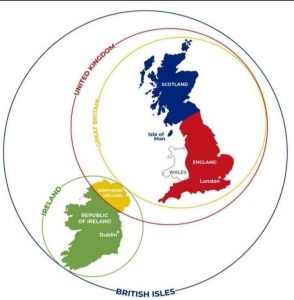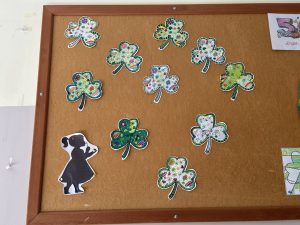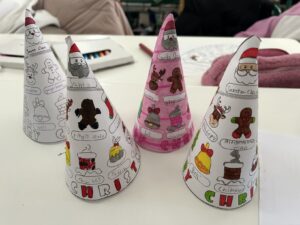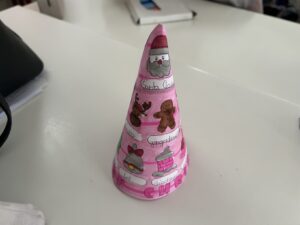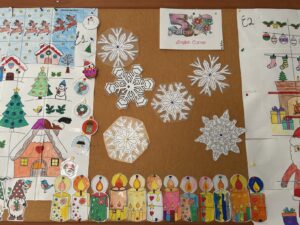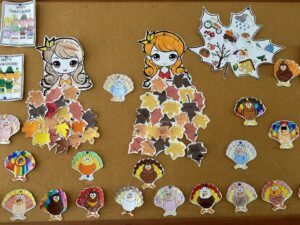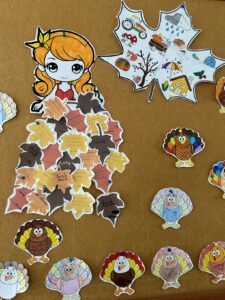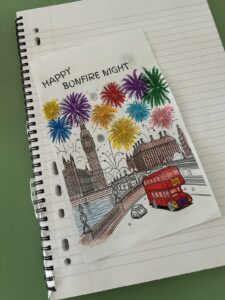Ετικέτα: culture
Is the United Kingdom, Great Britain and England the same area? _ Accents
source: Η γεωγραφία είναι πολύ κουλ (fb group)
Upper-class English accent, Cockney accent
Scottish: voice recognition, air traffic control
Welsh:Drive-Thru Special!!!
Llanfairpwllgwyngyllgogerychwyrndrobwllllantysiliogogogoch
Irish: Farmer
Baamboozle Game, Name the flag, Name the cities, Quiz, Label
,
European Day of Languages (2025)
Celebrating the European Day of Languages at Our School – Languages open hearts and minds!
Last week the students of the 5th grade had the chance to celebrate the European Day of Languages with creativity, teamwork, and lots of fun! The aim of the day was to highlight the importance of learning new languages and to promote respect for different cultures.
During the English lesson, the students explored simple greetings in more than ten European languages and created colourful posters to share with the school community.
To make the day even more interactive, we played a quiz game where students had to guess the country from audio recordings of different European languages. Laughter and excitement filled the room as students discovered similarities and differences among languages.
The activities helped students realize that learning a new language opens doors to communication, friendship, and cultural understanding. It was a wonderful way to celebrate diversity and remind everyone that languages connect us all!
St. George, the patron saint of England
Every year on April 23rd, England celebrates St George’s Day, a day dedicated to the country’s patron saint. But who exactly was St George, and why is he so important?
St George was a Roman soldier born in the 3rd century, likely in what is now modern-day Turkey. He became famous for refusing to give up his Christian faith and was martyred around the year 303 AD. Over time, his bravery and dedication turned him into a legendary figure.
The most famous story about St George is the tale of St George and the Dragon. According to legend, a fearsome dragon was terrorising a town, and the people were forced to offer sacrifices to keep it away. When the king’s daughter was chosen as the next victim, George bravely fought and killed the dragon, saving the princess and the town. This heroic act made him a symbol of courage, honour, and protection.
Today, the red cross of St George is part of the Union Jack, and it also appears on England’s flag. While St George’s Day is not a public holiday, many people still mark the occasion with flags, parades, and traditional English food.
Even though the story is more legend than fact, St George represents bravery and standing up for what is right—values that are still important today.
Where To Celebrate St George’s Day 2025
St. Patrick’s Day (2025)
On March 17th, people all around the world celebrate St. Patrick’s Day, honoring the patron saint of Ireland. It’s a day filled with green, shamrocks, traditional music, and a little bit of magic! According to legend, St. Patrick used the shamrock to explain the Holy Trinity, which is why it has become the symbol of this festive day.
At our school, we took this opportunity to explore the Irish culture, listen to Irish music, and create fun crafts featuring shamrocks and the mischievous Leprechaun! It was a great way to learn about another culture through creative and joyful activities.
Happy St. Patrick’s Day to all! 🍀🌈
William Shakespeare (his life, plays and times)
Interactive Video 1
https://en.islcollective.com/english-esl-video-lessons/listening-comprehension/deep-listening-focus-on-meaning/biography-of-shakespeare/647560
Interactive Video 2
https://en.islcollective.com/english-esl-video-lessons/listening-comprehension/deep-listening-focus-on-meaning/the-life-of-shakespeare/578110
LearnEnglishKids
British Council
Christmas Activities 2024
Arts and Crafts
St1 (9th Primary School,Ilion)
E1 & E2 (14th Primary School, Ilion)
Christmas Carols
Letter Exchange with the students of the Artaki Kalpakian school


